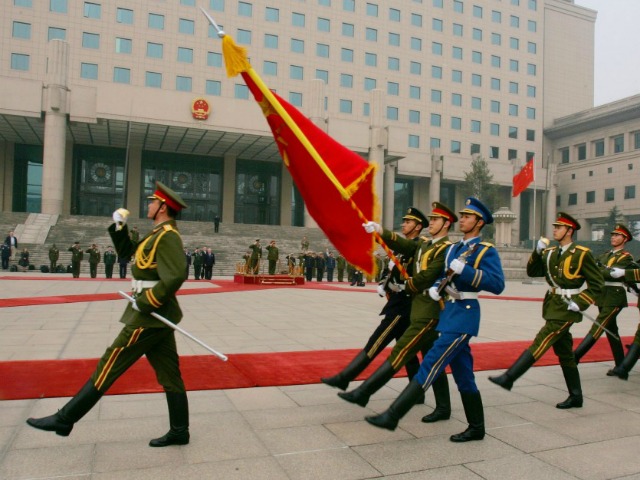On May 19, the U.S. government took a highly-publicized stand against state-sponsored cybercrimes by formally indicting five Chinese military officers who had infiltrated various American companies’ systems in order to steal trade secrets for the benefit Chinese companies. The compromised American companies included some in the nuclear energy sector, which obviously heightens concern.
And just two weeks ago on July 9, new details emerged that Chinese hackers have also breached U.S. government personnel files, targeting workers who applied for top security clearances.
Those indictments and revelations confirm China’s longstanding reputation as trade malefactor. For years, China has ranked high among the list of nations engaging in software piracy, and many American software companies consequently refuse to export their products to China for fear that whatever is sold there will be illegally copied and distributed.
And this spring, China descended to new depths by launching a state-funded and -operated patent assertion entity (PAE) named Ruichuan IPR Funds. In addition to distorting free trade and global free markets in favor of Chinese industry via government support, the new PAE will likely engage in that familiar habit of hacking and espionage against non-Chinese enterprises. The new PAE also demonstrates that the perceived problem of “patent trolls” can no longer be considered merely a private sector threat.
Surprisingly, China is actually late to the game compared to some other countries that founded their own PAEs years ago. France’s Brevets, Taiwan’s Industrial Technology Research institute, the Innovation Network Corporation of Japan and Intellectual Discovery in Korea are just a few other foreign PAEs that exist today. Meanwhile, countries that opt instead to embrace free markets and play by the rules are thereby put at a competitive disadvantage vis-à-vis these powerful government-sponsored patent trolls that possess seemingly limitless government resources behind them.
In all likelihood, Riuchuan IPR Funds will parallel other PAEs by setting its sights on American business in search of infringement settlements and providing Chinese technology firms an advantage against would-be American competitors.
Accordingly, while the U.S. Congress wallows in the wake of failed patent reform legislation, our economic adversaries like China continue to arm themselves with PAEs that threaten free trade and undermine global free markets.
Rather than addressing these serious threats, however, too many in Congress merely trade blame for failed Senate patent reform bills. Senator Patrick Leahy (D-VT), champion of Senate patent legislation, confessed that he is “furious” at Senate Majority Leader Reid (D-NV) for dropping the bill. Others have accused Reid of forcing Leahy to drop the bill because the trial lawyer lobby whose political contributions are essential to Democrats during an election year opposed reform. As we have written previously, frivolous lawsuits and outlandish demand letters improperly burden small business owners by forcing them to fight patent trolls rather than innovate or grow their business.
Regardless, what is clear is that politics prevailed over addressing the continuing problem of patent trolls.
Prior to the Senate failure, the House passed the Innovation Act in the name of patent reform by a vote of 321 to 91, and even President Obama has expressed willingness to enact reform. So perhaps there is reason for optimism that reform may yet occur.
Unfortunately, even the House bill did not directly address foreign PAEs like China’s Riuchuan IPR Funds. For its part, the Obama Administration has also failed to address PAEs and their encroaching threat to American innovation.
Now faced with the threat of foreign trolls such as Ruichuan IPR Funds, American companies may find themselves warding off more than just the typical domestic patent troll lawsuit. Instead, they’ll also find themselves defending their operations against entities backed by the resources and force of foreign governments – a very unfair battle of resources.
While the U.S. government’s indictment against the Chinese hackers constitutes a positive step toward defending our interests and protecting global rule of law, more must be done to safeguard American firms and the free market system upon which economic growth, prosperity and intellectual property rights depend.
Regardless of what the near future brings in terms of patent reform legislation, Congress and the Obama Administration must become aware and face the growing threat of foreign government sponsored trolls like the Chinese Riuchuan IPR Funds. We simply cannot allow American businesses to be penalized for playing by the rules of the free market while governments like China’s stop at nothing to tip the scales in their businesses’ favor.
Timothy H. Lee is Senior Vice President of Legal and Public Affairs at the Center for Individual Freedom, an Alexandria, Virginia-based nonprofit organization founded in 1998 to advocate the principles of free markets, limited government and international liberty.

COMMENTS
Please let us know if you're having issues with commenting.